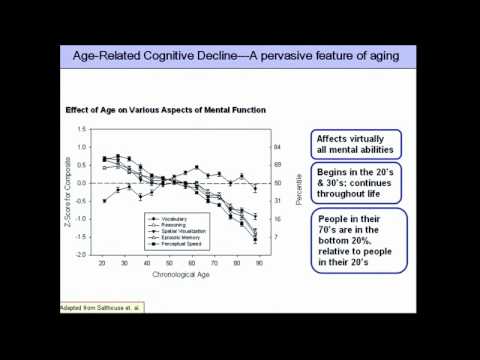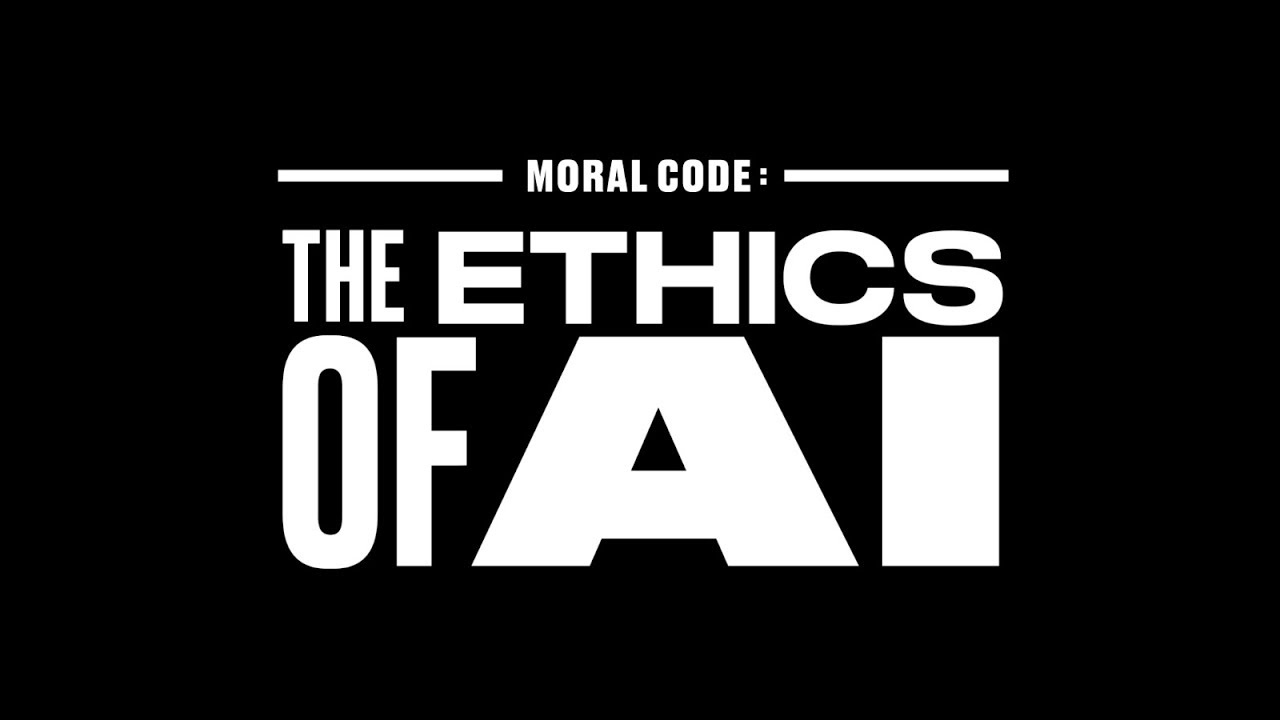Google TechTalks
Google Tech Talks
June 16, 2008
ABSTRACT
Explore the brain’s amazing ability to change throughout a person’s life. This phenomenon—called neuroplasticty—is the science behind brain fitness, and it has been called one of the most extraordinary scientific discoveries of the 20th century.
PBS had recently aired this special, The Brain Fitness Program, which explains the brain’s complexities in a way that both scientists and people with no scientific background can appreciate.
This is opportunity to learn more about how our minds work—and to find out more about the latest in cutting-edge brain research, from the founder of Posit Science and creator of the Brain Fitness Program software, Dr. Michael Merzenich.
Speaker: Dr. Michael Merzenich, Ph.D.
Michael M. Merzenich, PhD: Chief Scientific Officer Dr. Merzenich leads the company’s scientific team. For more than three decades, Dr. Merzenich has been a leading pioneer in brain plasticity research. He is the Francis A. Sooy Professor at the Keck Center for Integrative Neurosciences at UCSF. Dr. Merzenich is a member of the National Academy of Sciences. He is the recipient of numerous awards and prizes, including the Ipsen Prize, Zulch Prize of the Max Planck Institute, Thomas Alva Edison Patent Award and Purkinje Medal. Dr. Merzenich has published more than 200 articles, including many in leading peer-reviewed journals, such as Science and Nature. His work is also often covered in the popular press, including the New York Times, the Wall Street Journal, Time and Newsweek. He has appeared on Sixty Minutes II, CBS Evening News and Good Morning America. In the late 1980s, Dr. Merzenich was on the team that invented the cochlear implant, now distributed by market leader Advanced Bionics. In 1996, Dr. Merzenich was the founding CEO of Scientific Learning Corporation (Nasdaq: SCIL), which markets and distributes software that applies principles of brain plasticity to assist children with language learning and reading. He is an inventor on more than 50 patents. Dr. Merzenich earned his BS degree at the University of Portland and his PhD at Johns Hopkins.
Source




Recording for prosperity? Not to sell everyone a bunch of crap or for some big data dump for the sake of some overlord?
Not sure this guy understands what babies are actually born with
Summary:
=> About brain plasticity (simplified). Covers 1)Brain plasticity across a lifetime, 2)improving individual brainpower 3)maintaining brain fitness and 4)why this matters
1. Brain plasticity across lifetime (3:52 – 46:00 )
Context: Babies are born stupid (no thought, perception, etc.), but have incredibly rapid learning skills. Our skills and abilities are shaped incredibly by culture.
1.1 Brain plasticity epochs:
a) Brain establishes control of its own development. (Set-up period).
+6 characteristics: a) always-on. b) environmental stimuli shape the initial brain processing machinery. c) auditory processing specialisation for baby's native language. d) early cortical specialisation enables development of working memory and attention. e)modulatory control processes enable selective plasticity on "good" outcomes. f) finally, plasticity gated by: working memory, attention, outcome specific plasticity.
b) Brain acquires its primary skill repertoire by controlling its own plasticity.
+ complexity increased through "success" feedback from repitition. Success measured through goal being achieved, or by modelling others' successful use of skill.
+Limitations occuring from abnormal development, from normal aging or psychiatric/neurological illness are reversible or correctable. We can improve, through intervention, the speed, accuracy, power, coordination, noise-immunity of cortical respresentations.
+ Almost any learning problem in children can be overcome through intensive training on brain PROCESSING and SPEED, the key skills supporting language and reading. 36:50 – 44:00 for How.
*33:13 – 36:00 has a super interesting statistic on 30 million word gap between professional parents' children Vs welfare.
c) "users" of the mastered skills and abilities.
+ 50 is the cross-over point between high level of vocabulary, but declining reasoning, spatial visualisation, episodic memory and perceptual speed. Why? Brain gets noisier, older, relies too much on abstraction, and is taken poor care of.
*52:55 onward is the elderly program for brain fitness
2. Improving individual brainpower
3. Maintaining brain fitness (49:30 – )
+To maintain the performance of the brain, there has to a) be a focus on learning things that are "truly new" b) diet rich with nuteients, c) physical exercise (at least 10 mins a day) d) "social exercise".
4. Why this matters (56:30 –59:30 )
5. Q&A (59:30 – 1:29:54 )
49:40 "We confuse the acquisition of content for the acquisition of new ability."
Youtube show me this after 10 years…. GG
It is Tagalog, not tugalig
What about diet? What diet is brain friendly?
please insert coin if you wish to continue using your brain.
Save your brain from ageing by 1hr 30 by not watching this…
We need to try to eliminate any over excitation of 'fear-promoting chemicals' from over influencing the developing fetus. This has drastic effects on the organisms ability for clear decision making throughout its lifetime. Competition like a monetary society is not good for the mother or baby – at this important beginning. Evidence of this, is most prominent now. Almost all people are enfranchised yet, at this time, we have increasing levels of anxiety and depression. It's a tough decision and not many people want to take the first step to avoid programming scared political brains.
Brain Gym helps. I like the idea that learning a music instrument is a great way to learn learning again. Somewhere else I heard that talking is one of the best brain gyms (much better than sudoku).
I am happy that a woman was asking questions at the end, because a very important word was spoken: "emotions". I think emotions are very important. If I can play the violine like a pro and play chess like Kasparov all this IQ things do not help if I have a low EQ.
The approbations/affirmatives ratio is an important reason why your brain is in the current shape. But the good news: It is in your hand and you can influence you (your brain) even if you are old. Thank you for these good news.
Of course Dr. Michael Merzenich is advertising his computer aided learning programs 🙂
My personal brain gym includes rope skipping, juggling, tongue-twisters, playing tennis, playing piano and of course the daily interaction with my family.
Nice video. Could be shorter, but still useful.
Goodness. I've made the mistake of scanning these comments and was quickly reminded not to ever do it again! Access to lectures without a cost is far more worthy, more valuable – than any of the complaints. I wonder if these statements would be made if the writer were sitting in the lecture room.
I'm happy to create my videos with my account videos and pictures with my family for
I noticed the audience all had something in common.
Yes, especially in 1st world countries we must learn math and engineering, robotics and computer science.
Simply, " Enter the kingdom as a child".
Too much talking!
for the love of God it's pronounced tu-ga-lig
I have sat through a million boring lectures and nearly died. I already lost my belief that you can learn from lectures. There are some good ones at YouTube. But this one made me laugh and learn, and then learn more. Wow! The best I have ever attended! Really! Dr Merzenich rocks!
Scientists exclude the influence of the invisible hand of Our Great Maker. Important to note that the man speaks in simple terms about a topic so complex and vast that the library of congress is dwarfed in its presence. Not impressed.
Why would he not rewire his brain to not over eat?
THE SOUND QUALITY IS SHOCKING POOR – PERHAPS WE COULD create a charitable fund to buy them some quality sound equipment?
I don't have to be a neuron scientist to know there is a direct correlation to brain development and environment and the truth is the scientific community and general community has also always knowknown this.
alot of talking to say nothing, get to the point…
Lately (5/16) news reports are saying that many brain training programs are only placebo. I wonder how this work stands up.
The brain that changes itself. He's in that documentary.
If you try to be like a kid seeing the world as it is ..not trough abstract interpretations ..but consciously seein everything with enthusiasm .commiting to that ..also choosing to pay more attention on everything ..we as we get more experience we start to ignore some information that we already know .and that's bad for learning new stuff.
where do we find the training for adult's
To all of you who have offered advice for me and there are a lot of you with all sorts of different points of view on what could possibly work for me in my life. I wanted to point out, as an example of what I go through, yesterday was a day that I just wanted to give up trying to learn or accomplish any more than what I have in my life(such that it is). Playing on my keyboard and always trying to get what is in my brain, to my hands. I have so many ideas, so many pieces of music that I forever try to start to get down on the keyboard and try, to no avail, to accomplish simple tasks, but it all goes the same way, which this has always been this way. So I have a particular piece that is on my mind, nothing complicated, in the scheme of things, just a few measures of music. I start to play them on their perspective keys/notes, with the chords and melody that I'm trying to do; but my brain throws me off. My brain scrambles, or puts the brakes on, leads me to a blank state of thinking where I get stuck in thought and just sit. I can't think of anything and I'm just blank. So I try to start again and it's like whatever I had just tried to do on the keyboard, suddenly just disappeared from my mind. Deleted, if you will. Then I try to recapture the simple piece and I'm totally lost. I try again a little later when the piece comes back to my thoughts, and the same thing will happen. Also, when I have the song basically laid out in my mind of what I want to do, I will go just so far, then lose the beginning. Then I have to try to review and start over, then catch up again. So basically, I can spend and hour ending up where I started. If I could have read music, maybe it would have been easier. But I tried to learn when I was young. It was much to complicated to learn , A major 5th in and triads, B and D minor notes are actually the same as but int the key of C, it's labeled differently and it may transcend to ,, and BS like that. I can't learn like that. I have to know what it all means. The who, what, where, when , why, which of things, or it doesn't make sense to me. So between keeping my mind focused, controlled the scrambled thoughts, remember a few chords and not play them and then a moment later, just forget what I just played. I hate it. It's not fair. It's one of the biggest things holding me back. I can't plan, make decisions, organized or complete tasks. As it is, most of the time, and as it's been my whole life, is that I have to get kick started to get going and every little project, however small or large, seems like a monumental undertaking.
2/16/15: Also let me try to convey this basic scenario that I'll try to put metaphorically: Let's say, A fire fighter is trying to tackle a forest fire. He starts at one point and seems to be making headway in extinguishing it. He continues on further in that area and it seems like he was getting things under control around half way through getting so much completed, but the place where he started, has started burning again. He feels lost and can't remember exactly where he is, being that now he's a bit confused and disoriented. Tries to make his way back to the beginning to start over. Now, the rest of the fire that was ahead of him that he was making head way at, is spreading further out of control. But he's stuck at the beginning to try to tackle it all over again. So basically, he got no where. And this, my friends, is essentially why I can't make head way in accomplishing anything significant in my life. Even the small things. I begin, start to get somewhere, as hard as that is already, then I forget the how and where I started, while I'm already getting confused and disoriented at the current point I'm at in the project. So I have to go back and either do some reviewing, or just plain start over again and hope I can capture what I was going after to begin with. I get NO WHERE. And let's say, applying this to try to compose a song on my keyboard, and on top of it all, the keys I was using, seem to now just blend in with the rest and I lose my place. I have to remember the keys, chords and melodies, being that I never learned how to read music.
The Brain That Changes Itself: Stories of Personal Triumph from the Frontiers of Brain Science [Norman Doidge] Engaging look at the the biggest revolution in brain science in four hundred years. Worth a look if only on Amazon's Look Inside!
http://www.amazon.com/The-Brain-That-Changes-Itself/dp/0143113100
fantastic
My god how can this man fail to know what approbation means! And misuse it as its exact opposite! Inexcusable.
My advice: Don't watch TV (except for "Big Bang Theory"). No porn, no computer games. Don't procrastinate. Alternate between focused (lists, memorization, etc.) and reflection (relax and recall) modes of thought. The Einstein method: post relevant papers on your walls and spend days going from paper to paper making notes, reflecting, and writing down conclusions.
Epoch 4 – Gaining conscious control of your neural plasticity using tools such as biofeedback, self-improvement training, and Neural Linguistic Programming (NLP).
https://www.facebook.com/The-Infinity-Frisbee-900325393349254/
I am convinced that in the future we will connect our body to devices that will help us learn. We just need to come up with good concepts.
Vue U, from what you say and from what I have read and heard; I believe you may be helped by a Neuro-Linguistic Programming practitioner (NLP). I do believe it would be worth your while to look into it anyway. I wish you well and I do hope you find the help you are looking for.
So after all of this in his speech and talk about training/retraining, what is the training and exercises. Who, with any experience in this area can help me with this? I have had replies before, but they just don't seem to apply to me or are unreachable for me. I am a 51 year old male with, for starters, schizoaffective disorder. Have been molested as a toddler, bullied all my life. Can't get my mind to where I know it needs to be and there, so far is no psychiatrist/psychologist, counselor, psychoneurologist/neurologist who is qualified to help some one like me. I went to new psychiatrist a few days ago to see if this person might be a better choice then the dead end/nowhere one I have been going to. But after 2 visits, she decided that I was too much and too complicated for her to help. She almost then immediately dismissed me as a patient. I guess she just wants the easy skin deep Monday blues sort of patients to counsel who don't have what people like me have on their plates. She merely washed her hands of a person who was and periodically is suicidal. She just let me go and threatened to call the men in white coats if I didn't change my statement from wanting to harm myself to I'll be fine for now, instead. bunch of crap. So where do I go and who do I see for this kind of help?
exellent points……..esp loved the "30 miilion word" difference between poor and educated parents reflected in their children….30 million words more ariving at their first encounter with the school system……never had a chance…..the poor kids. ..
A brain exercise tip. Get a mini camcorder. Go outside and slowly walk around the block while the camcorder is recording. When you get back to your starting point go back into the house and review first what you remembered in as minute detail as possible. Write it all down in a notebook. Draw a map. Then review what you recorded to see what you did and didn't recall. Do this for seven days. Then repeat the whole procedure walking the other way round. Then the next block over.
In this way you use words, images, spatial memory, concepts, regular memory, imagination, ..etc. In short; your whole brain. To make it more challenging try to recall the last thing you viewed first and work forward to the first thing you recalled last. Be sure to record your experience with all your senses. Flowers, color shape, size, numbers, fragrant, what taste they remind you of, what sound they remind you of…etc. Good luck.
Sorry ZFlyer… he doesn't… It's mostly a sales pitch / information lecture. The only applicable advice he gives is to 1) Keep Learning & 2) Make sure that learning involves multiple brain areas. i.e. Learning a musical instrument or a second language.
Regarding the section around 33:30 — This does not always apply. For a matter of fact, my brothers and I were capable of speaking,reading and writing in 3 different languages by the age of 4. We never liked to read though, so we cant give much credit to books (never the less, being students, we had to read)… And yet, by the age of 9 we were learning our 7th language. Now, it is obvious that we have developed a much wider vocabulary than most people in the world. But my point is, what you say in section 33:30 is not entirely correct, my brothers and I were never exposed to a good learning environment, meaning our parents discussed all the time, we do not spontaneously read, and nobody forces us into trying to memorize a language. Instead we just absorb all the words we hear during the day like a sponge and this has always worked that way. My brothers and I are now actually putting effort into learning more languages, but not because we can not pick learn them as easy as we used to, but because we want to learn them faster. Faster than most people are able to. Point again being, that the amount of knowledge we acquire strongly depends in how our brain selects what is important and what is not, and not that much on how that knowledge is given to us at early age.